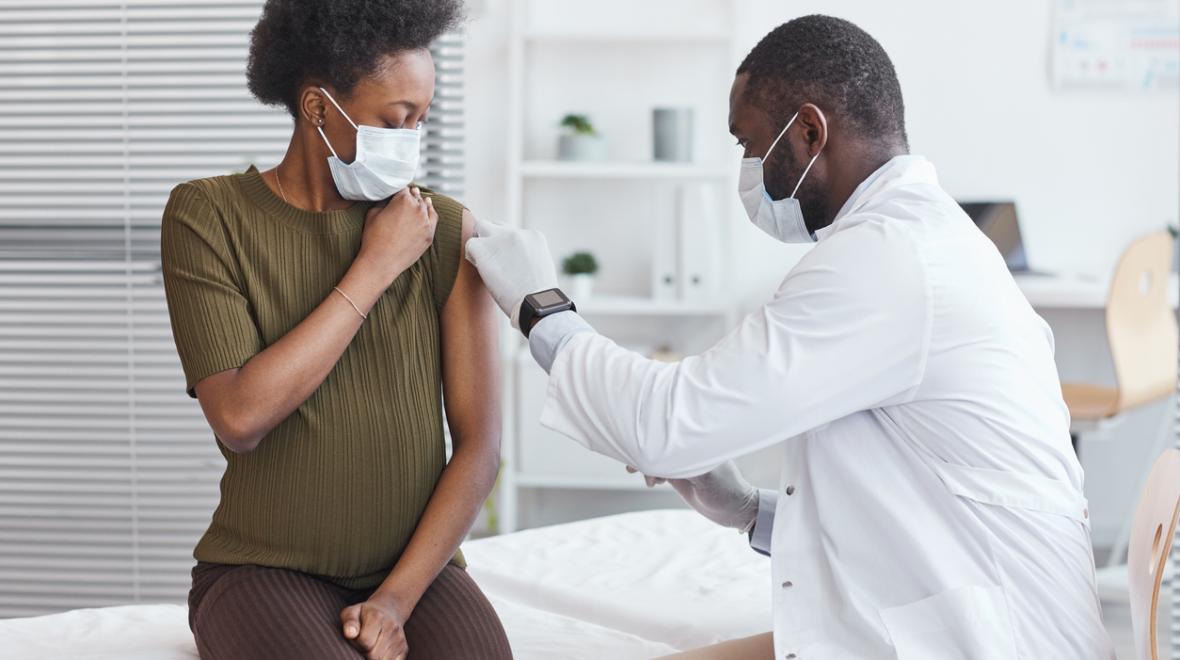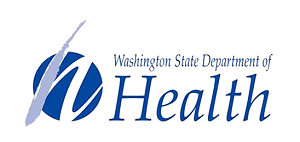
Editor's note: This article was sponsored by the Washington State Department of Health.
For most people who want to have children, pregnancy is both a joyous time and one fraught with hormone-fueled anxiety. From what foods to eat (and avoid) to what kinds of exercises are okay during pregnancy, expectant parents want to know they’re doing everything they can to not only give their baby the best chance at a healthy gestation, but also that they are doing no harm. The anxiety is worse for those who have had trouble getting pregnant or bringing a baby to full term. And now there are concerns about contracting the coronavirus during or following pregnancy.
Washington State Department of Health officials want to reassure pregnant and lactating people, along with those who wish to safeguard their fertility, that the available COVID-19 vaccines are safe and effective in reducing the severity of the disease — and they do not affect your fertility. The DOH recommends that prospective parents get vaccinated as soon as possible, to protect both themselves as well as their newborn from COVID-19 infection.
“Pregnant or recently pregnant people [who have contracted COVID-19] have much higher risks of dying, being hospitalized, needing a breathing tube and having a preterm birth or stillbirth,” says UW Medicine Professor of Obstetrics & Gynecology Kristina Adams Waldorf, M.D. “In a short time, 15 pregnant women died of COVID-19 in Mississippi alone, and eight of those deaths occurred in a few months during a delta variant peak in 2021. Being overweight at the start of a pregnancy or having diabetes further increases these risks. Overall, pregnant individuals with COVID-19 are 22 times more likely to die in pregnancy compared to uninfected pregnant people.”
Adams Waldorf continues, “One study found that unvaccinated pregnant individuals with COVID-19 had a 59 percent higher rate of preterm birth compared to those without COVID-19. Preterm birth is harmful for a baby and can lead to serious complications, including developmental and physical disabilities, long neonatal intensive care unit stays and even fetal death.”
As a labor and delivery nurse working in Spokane, Hannah Coburn, R.N., has witnessed fatalities from COVID-19 infections. “I saw some very sick moms with COVID-19 — we unfortunately had a couple of deaths,” Coburn recently told the DOH. “I’ve been doing my job for a decade and have only known of three patient deaths. Two of those were in the past year [due to] COVID-19.”
While some assert that there aren’t enough studies being done on the effects of the vaccine on pregnancy, that isn’t really the case.
“At this point, there are several studies investigating short-term reactions after getting the COVID-19 vaccine, pregnancy outcomes and miscarriage rates in people who received the COVID-19 vaccine during pregnancy,” says Alisa Kachikis, M.D., M.S., a maternal-fetal medicine specialist at the University of Washington.
According to Kachikis, the results of these studies have shown:
- Good tolerance of the vaccine in both pregnant and lactating people
- No increase in adverse events or poor pregnancy outcomes
- No increased risk of miscarriage with the COVID-19 vaccine
- Transfer of COVID-19 vaccine antibodies to the fetus through the placenta during pregnancy and the presence of antibodies in chest milk, both of which may help protect the newborn (Read more about the COVID-19 vaccine and nursing your baby here.)
Admittedly, the studies are relatively short in scope — they have all been conducted in the past year or so — and the inclination to poke holes is high, particularly when it comes to the welfare of the unborn. Coburn acknowledges that she had her own hesitations before ultimately deciding to get vaccinated while she was still nursing her newborn child.
“I have a physician I really trust. I was able to approach him with my questions without being made to feel bad for questioning something new,” she says. “Talking with him candidly helped me feel confident in my decision.”
Coburn says the vaccine gave her the chance to give her child a measure of protection by nursing her. “I wanted to be able to give my daughter, who was 9 months old at the time, the antibodies,” she says. “Knowing it would be a long time until she could get vaccinated, it was a weight lifted off of my shoulders. I actually love the science of it.”
Chest milk has long been known to protect infants against numerous infections, says Adams Waldorf. “It is more than nutrition and can provide the child with his/her ‘first vaccine,’” she says. “Many studies have shown that chest milk from people vaccinated against flu while pregnant contains protective antibodies that can be passed to the infant. A recent study showed protective antibodies against COVID-19 in chest milk following the two-dose series of the Moderna vaccine.”
Before getting to that point, however, the fear of a loss of pregnancy is immense for expectant parents, but as was the case for Coburn, having a trusted health-care provider to whom you can voice your concerns is vital at this time, says Kachikis. “I usually counsel my patients about the risks of getting COVID-19 illness in pregnancy and the benefits of the vaccine, not only for the pregnant person but also for the fetus and newborn who will not be able to be vaccinated after birth,” she says. “I also realize that many people have complicated obstetrics histories and may have had a difficult time getting pregnant in the first place. The recommendation is to get the COVID-19 vaccine at any time in pregnancy, and I think it is really important for the pregnant person to have a frank conversation with their prenatal care provider.”
According to Adams Waldorf, the data shows there’s no reason to wait. “The COVID-19 vaccines have not been linked to an increase in miscarriage rates,” she says. “In contrast, acquiring COVID-19 is associated with a higher stillbirth and miscarriage rate. The science and available data strongly support getting the vaccine while pregnant rather than avoiding the vaccine.”
There is no optimum time during pregnancy or after pregnancy to receive the vaccine. “At this time, the important thing is to get vaccinated in pregnancy if you have not already been vaccinated,” advises Kachikis. “Side effects of vaccines can occur, but taking medications such as acetaminophen, or Tylenol, is safe during pregnancy and can help with some of the vaccine reactions. It can be helpful to talk to your prenatal care provider or prenatal nurse to make a plan about which medications to take if you experience reactions with the vaccine.”
Kachikis says that in addition to continuing to address vaccine hesitancy, she is also advising expectant parents to go ahead and get the booster shot if they’re due for one. “In general, we do give boosters in pregnancy for other vaccines,” she notes. “If you are eligible to receive a booster dose because of your risk of contracting COVID-19, health conditions, or because you are pregnant and the right amount of time has passed since your last COVID-19 vaccine dose, the recommendation from the American College of Obstetricians and Gynecologists is to go ahead and get a booster dose of the COVID-19 vaccine. The hope is that this additional dose of the COVID-19 vaccine will boost your antibody levels and that of your baby, and provide even more protection from severe illness.”
Adams Waldorf reminds patients that historically, vaccinations have been a part of pregnancy care for a long time. “Getting vaccinated for whooping cough and flu when you’re pregnant has been recommended for decades and is a normal part of a healthy pregnancy,” she says. “The immune system is very skilled at making protective antibodies to different vaccines or infections at the same time. Common prenatal vaccines like flu and Tdap [tetanus, diphtheria and pertussis/whooping cough] are recommended in all pregnancies and can safely be paired with the COVID-19 vaccines.”
For more information about COVID-19 vaccination during pregnancy, visit the Washington State Department of Health website.
|
Sponsored by |
|
|












